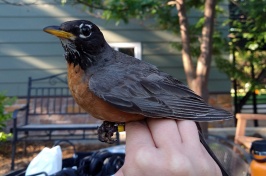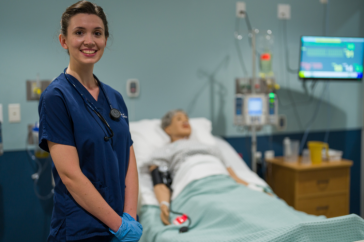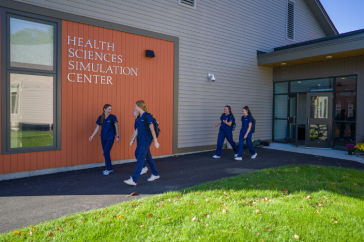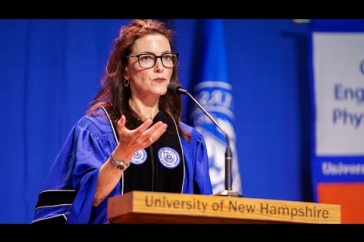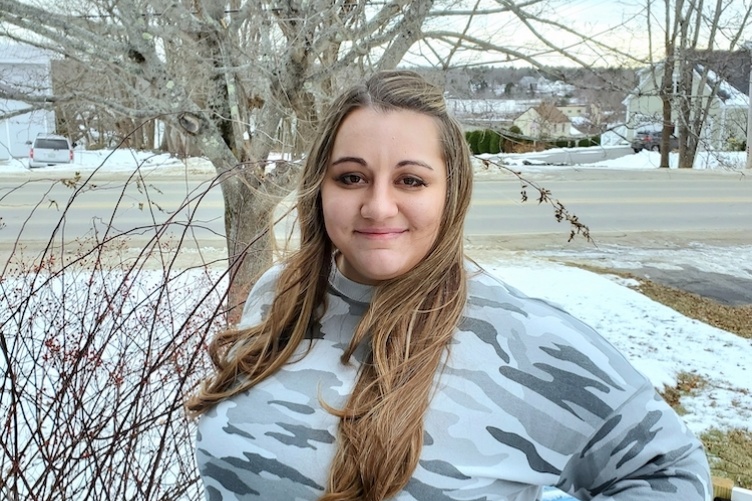
When Katie St. Pierre ’21 G was just starting her college career, she knew she wanted to go into nursing, but she was looking for a different experience. One that would allow her to travel, maybe, or work in varied environments. After giving it some thought, she decided to join the Army.
And with her nearly three-hour commute — she usually takes the train — the hybrid master's program is a perfect fit.
During the second semester of her freshman year, St. Pierre joined ROTC and was able to pick nursing as the path she would take once she received her bachelor's degree. She graduated from the University of Maine in 2013 and went to Fort Sam Houston in San Antonio, Texas, for officer training. Her first assignment was at an Army medical center in Georgia, working on the cardiac telemetry floor. At some point, she started teaching and before long, she was splitting her time between the cardiac unit and teaching.
In 2015, St. Pierre was transferred to Alaska. She left Georgia in January and arrived in Fairbanks, where the average temperature is 30 degrees less than that of Augusta.
“Fairbanks is dark half the year and light half the year, so there is a lot of seasonal affective disorder,” St. Pierre says. “In the summer, it’s light all the time and you need blackout curtains to sleep. In the winter, it will be 11 a.m. and it looks the sun is going to rise but it doesn’t. That night and day mix-up can cause problems for some people.”
The community hospital where she worked served members of the military and their families. St. Pierre cared for everyone from babies to the elderly. Sometimes she was the only registered nurse on duty
“In the Army, I treated all kinds of people with all kinds of health issues. It gave me a lot of insight into the kind of nursing I want to do,” St. Pierre says. “I had great experiences and got exposed to nursing jobs that I might not have been able to do if I wasn’t in the Army.”St. Pierre was there for three years. She left the military in 2018 and stayed working at the clinic as a civilian before moving back to Maine that November. She enrolled in the College of Health and Human Services' five-semester nursing program and started classes this fall. Her plan after she gets her degree is to work as a nurse practitioner with “kids through the lifecycle” so she can “see the whole picture.” Eventually she wants to be in the behavioral health field in a family clinic.
The Owl Head resident says she doesn’t know if she would have attended school full time if she didn’t have the GI Bill to help with tuition because she didn’t want to take on student loans. And with her nearly three-hour commute — she usually takes the train — the hybrid master's program is a perfect fit. This semester St. Pierre has been on campus one day a week; next semester, she’ll be here two days. With a summer course and full-time semesters during the fall of 2020 and spring 2021, she’ll graduate in 2021.
“You give up a little going into the military, but you get a lot that you wouldn’t get otherwise,” St. Pierre says. “I knew I didn’t want to live paycheck to paycheck. Now I’m setting myself up to have financial stability, so whatever I have had to give up will have been worth it.”
-
Written By:
Jody Record ’95 | Communications and Public Affairs | jody.record@unh.edu



























